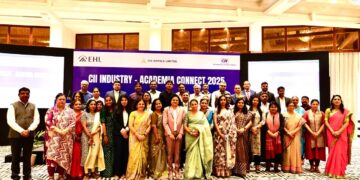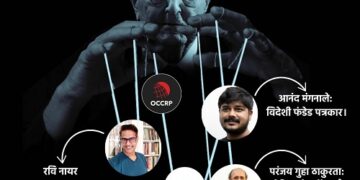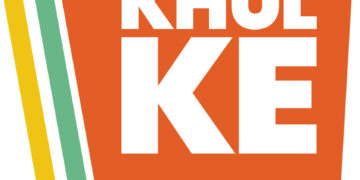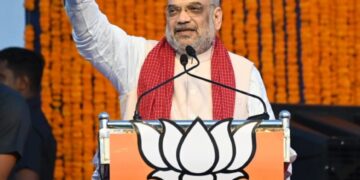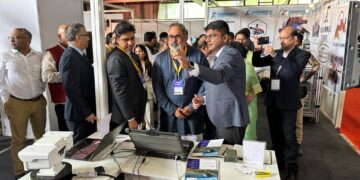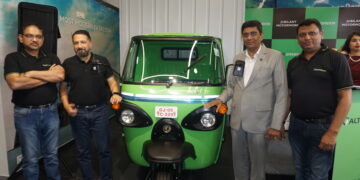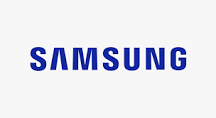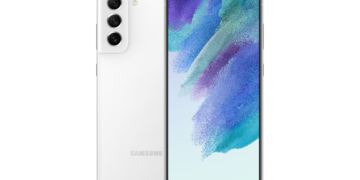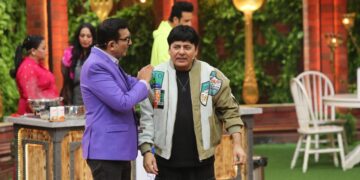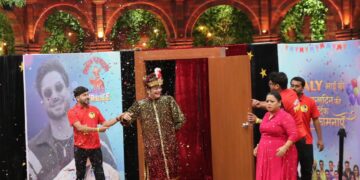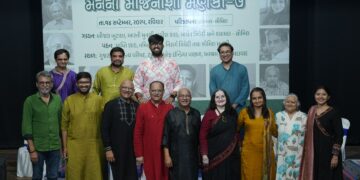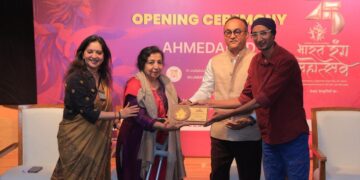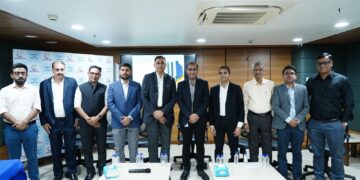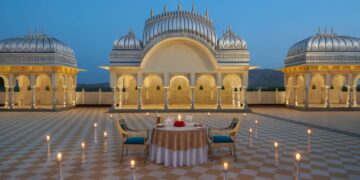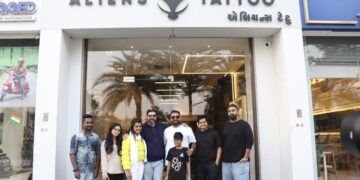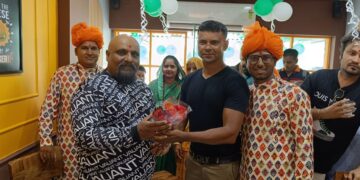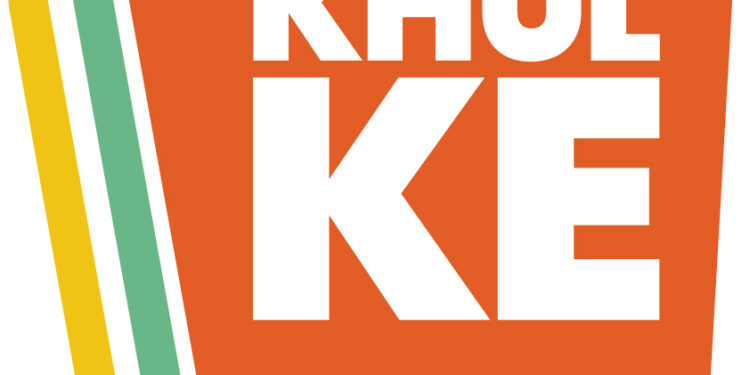A remarkable roundtable event was convened on the new social media platform, KhulKe, which focuses on facilitating meaningful conversations. The subject was the evolving relationship between India and the United States. The guest for this exclusive discussion was Mr. Prithviraj Chavan, former Chief Minister of Maharashtra, who in his capacity as Minister of State in the Prime Minister’s Office (2004-2009) played a critical role in the signing of the India-USnuclear deal between the then Prime Minister Manmohan Singh and USPresident George W. Bush.
KhulKe, an innovative social media platform dedicated to promoting open and insightful dialogues, hosted this enlightening roundtable to shed light on the complexities of the India-USrelationship.
Mr. Chavan noted that Prime Minister Narendra Modi’s recent visit to the United States generated substantial hype, but it needed to be recalled that, “when Mr. Narendra Modi, as the chief minister of Gujarat, wanted to visit the USA in 2005, he was denied a visa due to his role in the 2002 Gujarat riots” because “he was held completely responsible by the office of the American State Department which looks at religious freedom in various countries. Therefore, a visa was denied to a sitting chief minister of an Indian State, Mr. Narendra Modi.”But“when he became the Prime Minister, he became a welcome guest, and went to America on a number of occasions.”
“… when Dr. Manmohan Singh went to United States in July of 2005…That was a landmark visit. What the Narasimha Raogovernment did to the Indian economy in 1991, the 2005 visit to the United States did to India’s foreign policy.” Earlier, India’s foreign policy waspro-Soviet Union, later pro-Russia. We got a lot of military hardware from there and the Russians always helped us out in the Security Council with their veto,we were clearly seen to be in the Russian sphere of influence,”he added.
“So far, the Americans have welcomed an Indian Prime Minister with a state visit only on two occasions, first in 2005, Manmohan Singh, and the second now in 2023, Narendra Modi. Both visits were important, they made positive gains but the highlight of the 2005 visit was the landmark decision about the Indo-US Civil Nuclear Cooperation. Theregime which had excluded India from any nuclear trade, any nuclear technology, any independence of India in strategic nuclear affairs or power generation. We were always a pariah state because we had refused to sign the NPT, the non-proliferation treaty. And therefore, there was no cooperation at all”, he said.
Reflecting on the previous government’s achievements, Mr. Chavan emphasized the historical significance of the India-USnuclear deal signed during the tenure of former Prime Minister Manmohan Singh, “The nuclear liability insurance was a very tricky issue, because in India, most of the nuclear plants are operated by the state, like in Russia. But in America and other western countries, the nuclear suppliers are private sector people and operators are also private sector people, so the liability clearly is of the operator. Now in this case, should the liability be of the Indian state, which is going to operate the nuclear power plant, purchased from the western countries, like France, America, or should it be with the equipment suppliers?That was a very tricky issue, we got that issue sorted out in Parliament, we passed the nuclear liability law.”

Mr. Chavan compared the visits of both Prime Ministers to the United States, highlighting the commonalities and differences in their diplomatic engagements, saying, “Mrs Gandhi went to America in the crucial days of ’71, she was not buying anything from there, they were not willing to sell us anything. That was a different kind of relationship. When Dr. Manmohan Singh went, he was making a qualitative change on the global nuclear scene and he was breaking the rules of the nuclear establishment without signing the non-proliferation treaty, that was the beginning of India being treated as an equal member. So, we had arrived at the high table of nuclear trade and commerce. And we had arrived at the high table of foreign policy and global international affairs. That was a much more equal relationship, we got a lot out of it, here Prime Minister Modi has gone with a chequebook. He’s giving something, buying something. It would be unfair to call it a buying welcome but yes, when you’re going with a fat chequebook, the quality of welcome that you’ll get from the host nation is different, as you saw recently.”
The issue of human rights was also addressed during the roundtable, with Mr. Chavan acknowledging its importance in international relations saying, “Whether it is the democracy index, freedom index, freedom of press index and other things, we have clearly slipped. I think now while on one hand the Prime Minister talks about India being a developed country, by 2047 when we’ll celebrate our 100th Independence Day…What is a developed country? Will we be a developed country without these freedoms? Will we just have more freeways and more airports or continue slipping in education…We are not spending enough on research, the amount of money that we are spending on research has gone down, in subsequent years, particularly in the Modi years, from about 1% of our GDP to about 0.6% of our GDP.Advanced countries spend about 2,3, or 4%of their GDP on R&D.”
KhulKe is proud to have facilitated this intellectually stimulating RoundTable discussion, providing an interactive platform for informed conversations on crucial matters shaping India’s global engagements. The event exemplified KhulKe‘s commitment to fostering open dialogues and promoting a deeper understanding of complex geopolitical issues.
https://www.khulke.com/roundtable/recorded/64b50c245119df5901e3e737

